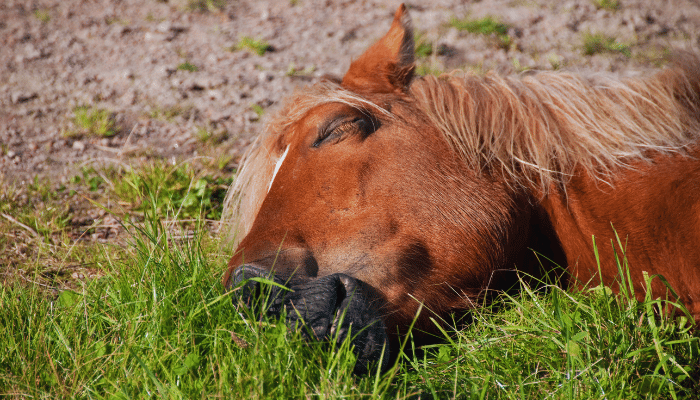Have you ever wondered, “Do horses sleep standing up?” This curious habit often leaves even seasoned horse enthusiasts scratching their heads. Horses, known for their grace and power, seem to defy the norms of rest by catching their Z’s on all fours. But why? It’s not just an oddity—it’s a survival instinct deeply rooted in their wild ancestry. Yet, standing sleep is only part of the story.
Agitated by the idea that your horse might not be getting enough restorative rest? While standing sleep allows for quick escape from predators, horses still require deep, lying-down sleep for full rejuvenation. Without it, they can face exhaustion and health complications.
In this comprehensive guide, we’ll unravel the mysteries of equine rest habits, debunk myths, and provide tips to ensure your horse gets the sleep they need—whether standing or sprawled out in the pasture.
Horse Sleeping Habits
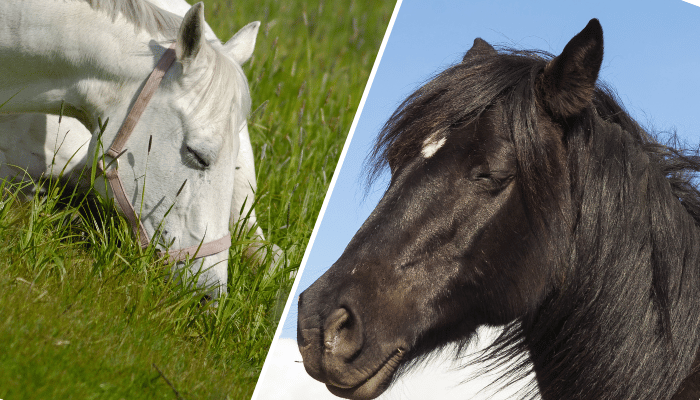
Standing vs Lying Down
Horses exhibit unique sleeping habits compared to many other animals. While they can sleep both standing up and lying down, each position is associated with different types and depths of sleep. The primary reason horses sleep standing up is to remain alert and ready to flee from predators, given their role as prey animals in the wild. This behavior is also observed in other large herbivores such as zebras, bison, elephants, and giraffes.
| Position | Purpose | Key Features |
|---|---|---|
| Standing | Light rest, napping | Enables quick escape from predators, uses stay apparatus |
| Lying Down | Deep rest, REM sleep | Allows muscles to relax completely, necessary for REM sleep |
Many horse owners may find that their horses prefer light naps while standing, as this state of rest still allows them to be aware of their surroundings and react swiftly to potential threats. Deep sleep, including the crucial REM phase, occurs when the horse is lying down. A horse typically needs to lie down for about 30 minutes every few days to achieve sufficient REM sleep.
For more information on whether horses sleep standing up, you can explore our detailed article on can horses sleep standing up.
The Stay Apparatus
The ability of horses to sleep while standing up is facilitated by a specialized anatomical feature known as the stay apparatus. This system consists of a series of tendons and ligaments that stabilize the major joints in a horse’s legs. The stay apparatus allows horses to lock their legs in place without exerting significant muscular effort, enabling them to relax and doze without the risk of falling over.
Key components of the stay apparatus include:
- Patellar Locking Mechanism: In the hindlegs, horses can lock their kneecaps over the femur, providing stability to the leg.
- Reciprocal Apparatus: This structure ensures that when the stifle joint is locked, the hock remains in a relatively fixed position, further stabilizing the leg.
- Flexor Tendons and Ligaments: These aid in maintaining the position of the joints with minimal muscle activation.
This remarkable system not only prevents muscle fatigue but also supports the horse’s weight, making it feasible for these animals to nap standing up.
For a deeper dive into other interesting horse behaviors and physiology, such as whether do horse produce milk or do horses sleep lying down, explore our other articles.
The stay apparatus is a fascinating adaptation that allows a balance between rest and vigilance, ensuring the horse’s survival in the wild. Understanding these mechanisms can help horse owners provide better care and create environments that promote healthy sleep patterns for their animals.
Understanding Horse Sleep Patterns
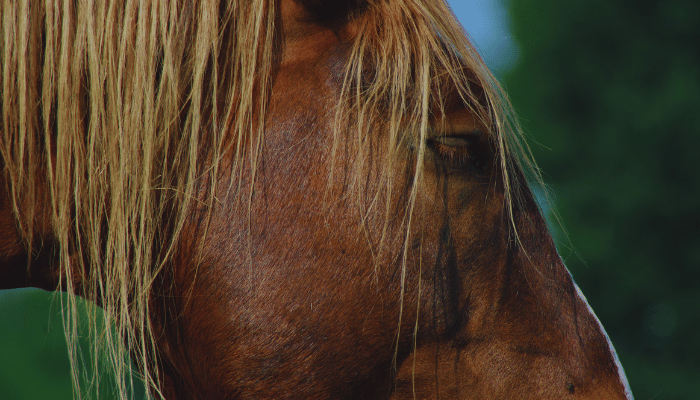
Grasping the sleep patterns of horses is essential for ensuring their overall health and well-being. This becomes particularly important when addressing the question of whether horses sleep standing up. Here, we will delve into the napping behavior of horses and their REM sleep requirements.
Napping Behavior
Horses have a unique way of catching short bouts of rest throughout the day and night, which is known as napping behavior. Unlike humans, horses do not have a long, continuous sleep period. Instead, they take several short naps that can last from a few minutes to half an hour.
| Time of Day | Nap Duration (minutes) | Frequency (times per day) |
|---|---|---|
| Daytime | 5 – 15 | 3 – 5 |
| Nighttime | 5 – 30 | 1 – 3 |
Understanding these napping behaviors is crucial, especially when ensuring that horses have adequate rest. These naps can occur while the horse is standing, thanks to their unique stay apparatus, which allows them to lock their legs and remain upright without expending much energy. However, it is essential to know that these naps mainly consist of “slow-wave” sleep. For more information on whether horses can sleep standing up, you can read our article on can horse sleep standing up.
REM Sleep Requirements
Rapid Eye Movement (REM) sleep is a crucial phase for horses, just as it is for humans. Unlike “slow-wave” sleep, REM sleep is where dreaming occurs and is vital for mental rejuvenation. Horses cannot achieve REM sleep while standing; they need to lie down for this deeper form of rest (Mad Barn).
For proper health, horses require at least 25 minutes of REM sleep per day. Fortunately, most horses get their REM sleep in several short sessions scattered throughout a 24-hour period. Comfortable resting areas with soft bedding are essential, as horses without access to such areas tend to get less REM sleep.
| Sleep Type | Required Duration (minutes/day) |
|---|---|
| Slow-Wave Sleep (standing) | 300 – 600 |
| REM Sleep (lying down) | 25 – 60 |
It’s crucial to note that foals require more REM sleep for proper development compared to adult horses. Sleep deprivation poses serious health risks, including falling injuries, and can even lead to conditions being misdiagnosed as narcolepsy.
Ensuring that horses have access to a safe and comfortable lying-down area is vital for their overall well-being. For more detailed information, consider reading our article on do horse sleep lying down.
Factors Influencing Horse Sleep
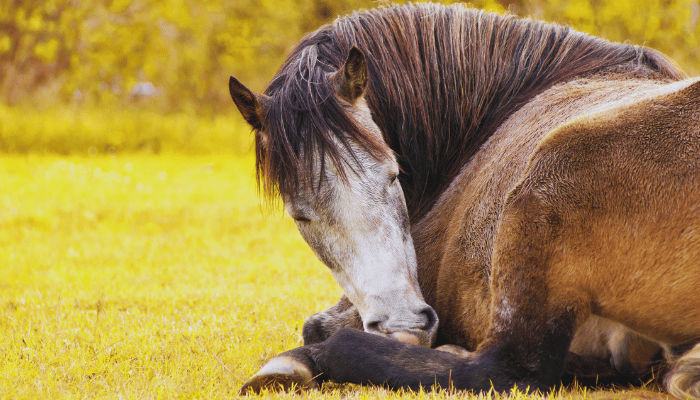
Several factors influence how well horses rest, impacting their health and overall well-being. It’s important for horse owners to understand these factors to ensure their animals get the necessary rest.
Environmental Conditions
Horses have specific environmental needs that influence their sleeping habits. Here are some key points:
- In feral horse populations, if one horse lies down to get REM sleep, others usually remain standing to watch for predators.
- Horses will only lie down to sleep if they feel comfortable and secure. Feeling insecure or threatened in their environment can keep them from lying down.
- Although horses can rest while standing, they need to lie down to complete a full sleep cycle. Factors like unsuitable living conditions, social insecurity, and physical discomfort can prevent them from lying down, leading to REM sleep deficiency and excessive drowsiness.
- To improve the quality of life for group-managed horses, ensure there is enough space for all horses to lie comfortably for at least 30 minutes daily and address medical issues like osteoarthritis that may limit their ability to lie down.
- Overweight horses can have difficulty lying down and getting back up, impacting their REM sleep. It’s important to keep horses in an appropriate body condition to ensure they can lie down and rise comfortably, promoting adequate rest.
Health and Well-Being
The overall health and well-being of a horse significantly impact their sleep quality. Key factors include:
- Managing inflammation and providing calming supplements can improve sleep quality. Omega-3 fatty acids can help reduce inflammation, and nutrients like thiamine, magnesium, and taurine support proper nerve and muscle functions.
- Paying attention to each horse’s individual sleep patterns and needs is crucial. Addressing any issues that prevent relaxation and unwinding is vital for the horse’s well-being.
Understanding these factors can help horse owners ensure their horses get the rest they need. For more insights, visit our pages on can horses cry, do horses yawn, and do horses get tired of standing.
Promoting Healthy Horse Sleep
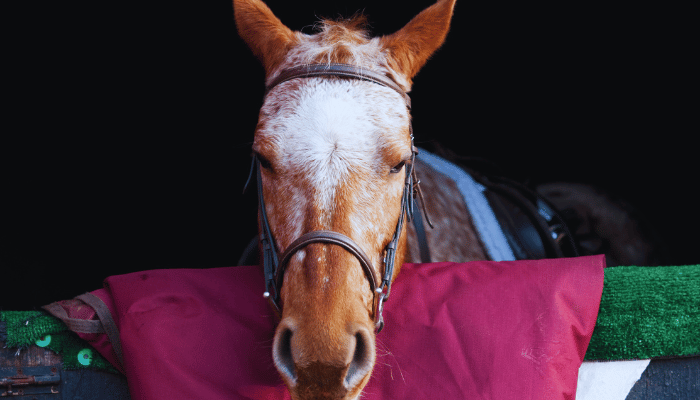
Addressing Sleep Deprivation
Sleep deprivation is a significant welfare concern for horses, leading to stress and increased health risks. Horses that lack sufficient rest can experience sudden drops into REM sleep while standing, causing their legs to buckle and potentially resulting in injuries.
To prevent sleep deprivation, ensure that horses have access to a proper resting environment. A study found that horses required more than rubber mats — they needed soft, bedded areas to lie down comfortably. Providing large, bedded spaces encourages horses to spend more time lying down, allowing them to achieve the necessary REM sleep (Kentucky Equine Research).
| Factor | Description |
|---|---|
| Bedding | Offer soft, bedded areas instead of just hard mats |
| Space | Ensure adequate space for all horses to lie down |
| REM Sleep | Aim for at least 30 minutes of REM sleep daily |
Further insights on equine sleep requirements can be found in our do horses lie down section.
Providing Optimal Conditions
Ensuring optimal sleep conditions for horses involves addressing various factors, including inflammation, diet, and calming supplements. Nutrients like omega-3 fatty acids help reduce inflammation, while thiamine, magnesium, and taurine support nerve and muscle function. Joint supplements, containing glucosamine, chondroitin sulfate, hyaluronic acid, and omega-3 fatty acids, can facilitate healthy joints and make lying down easier for horses.
Providing ample space for horses to lie down comfortably for at least 30 minutes daily is vital. Addressing any underlying medical issues, such as osteoarthritis, further improves the quality of life for group-managed horses and minimizes welfare concerns.
| Supplement | Benefit |
|---|---|
| Omega-3 Fatty Acids | Reduces inflammation |
| Thiamine, Magnesium, Taurine | Supports nerve and muscle function |
| Joint Supplements (e.g., Glucosamine) | Promotes healthy joints |
Ensuring a healthy sleep environment for horses helps prevent issues associated with sleep deprivation and promotes overall well-being. For more on the topic, explore our articles on do horses sleep standing up and how to create optimal sleep conditions for horses.

